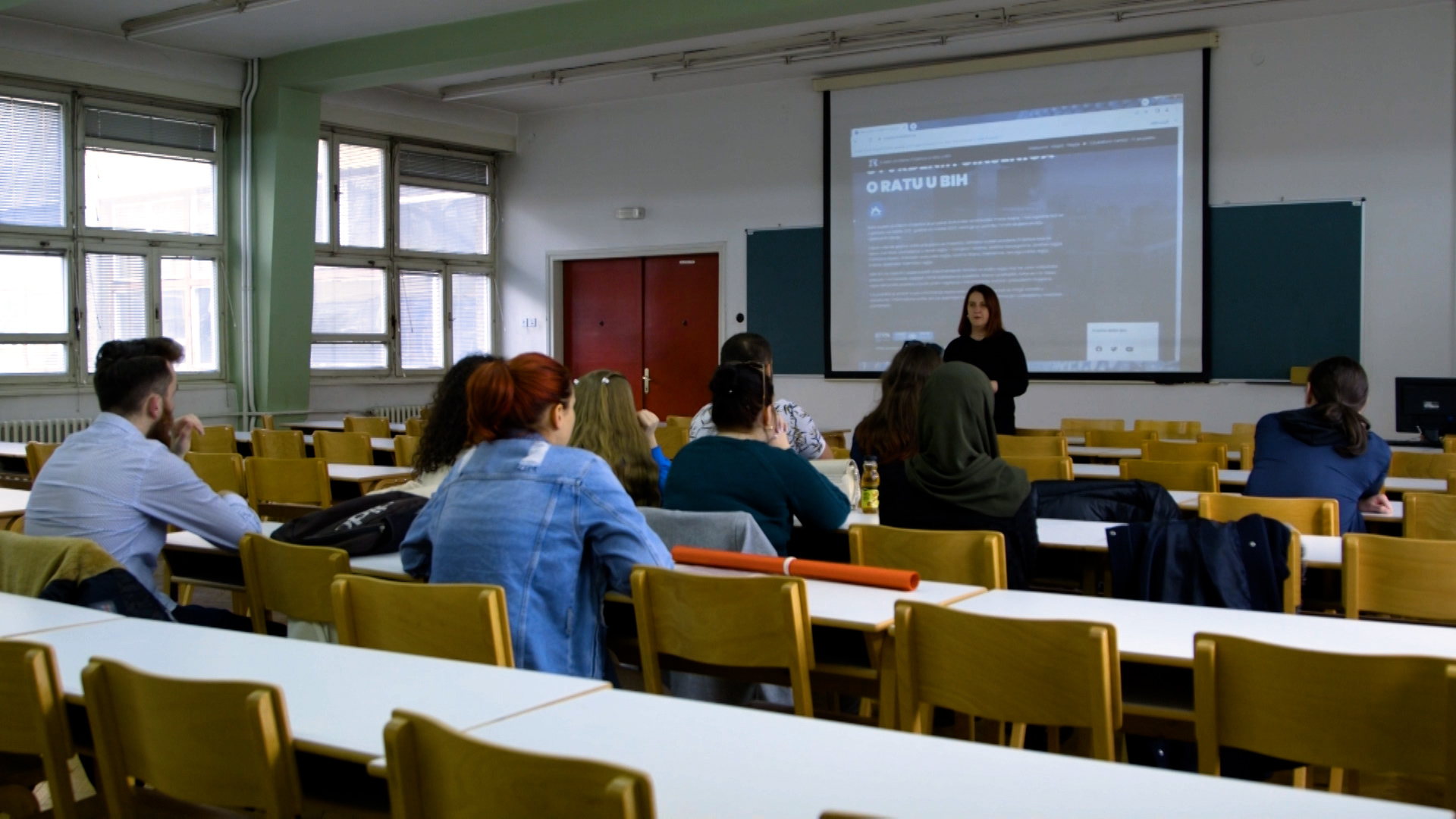This post is also available in: Bosnian
This year, three organisations dedicated to transitional justice are leading study trips for students on the events of the 1992-5 war in Bosnia and are preparing materials for history teachers to teach about the past based on judicially established facts.
These facts will be supplemented by the verdicts of domestic courts, as part of activities within a broader project for building long-term peace in Bosnia and Herzegovina.
In collaboration with the Srebrenica Memorial Centre and the Forgotten Children of War Association, this year, the Balkan Investigative Reporting Network of Bosnia and Herzegovina, BIRN BiH, is launching an educational initiative for senior class students and teachers on judicially established facts about the war in order to foster dialogue and the fight against denial of judicially established facts about the war.
BIRN Bosnia and Herzegovina will draw on its experience from the past 20 years, during which it has focused on issues of transitional justice and reporting on war crimes.
“Although the prosecution of war crimes cases is now coming to a close, we continue to see historical revisionism, genocide denial, war crimes denial and relativization, as well as glorification of perpetrators, even among young people,” BIRN BiH director Denis Dzidic explains.
Following a recommendation of the Council of Europe to temporarily suspend teaching on the 1992-1995 period, since 2018 the topic has returned to curricula and textbooks.
“Research shows that there is no universal approach to this issue in schools throughout Bosnia and Herzegovina,” Dzidic notes.
It is for this reason that the three organisations wish to encourage critical perceptions among young people about the war in Bosnia through the education system and oppose historical revisionism, as well as emphasize the importance of factual knowledge of war circumstances.
BIRN BiH will expand its database of judicially established facts that includes verdicts of the International Criminal Tribunal, ICTY, in the Hague, with verdicts passed down by courts in Bosnia, Serbia and Croatia, with a focus on the suffering and war crimes rather than on the perpetrators. A new digital platform of the database will be developed, making it more accessible to children and young people.
“Based on this database, a handbook for history teachers on how to teach about the war in Bosnia and Herzegovina will be developed. This project is implemented in cooperation with education ministries across Bosnia and Herzegovina, and in consultation with history teachers. We want to create a space for dialogue, critical reflection on the past, and a healthier future for young people in Bosnia and Herzegovina,” Dzidic explains.
BIRN BiH, together with its other partners, will also organise study tours to Srebrenica, Tuzla and Sarajevo, and prepare trainings for history teachers on how to use the materials derived from this database in class when teaching about the past.
The project “Building Long-Term Peace in Bosnia and Herzegovina: Investing in the Future”, supported by the United Nations Secretary-General’s Peacebuilding Fund, PBF, promotes fact-based learning, the development of critical thinking, and intergenerational dialogue – to strengthen trust and build a more resilient and inclusive future for Bosnia and Herzegovina.
Since becoming eligible for the UN’s Peace Building Fund’s support, Bosnia has advanced six active peacebuilding initiatives focusing on social cohesion, transitional justice and the engagement of women and youth, with a total investment of about 16 million US dollars, Ingrid MacDonald, Resident Coordinator of the UN in Bosnia, explained.
“By fostering fact-based multi-perspective education about the past conflicts, this initiative in particular equips young people with the tools to think critically, confront denial and engage with diverse narratives, laying the groundwork for more informed, inclusive and resilient society,” MacDonald added.
This initiative is not only an investment in education, but in the future of Bosnia and Herzegovina, she added.
PBF is the UN’s leading instrument to invest in prevention and peacebuilding, in partnership with the wider UN system, national and subnational authorities, civil society organisations, regional organisations and multilateral banks. The Fund supports joint UN responses to address critical peacebuilding opportunities, connecting development, humanitarian, human rights and peacebuilding pillars.




